Structure
The GFCM is governed by its contracting parties and managed by an elected Bureau. Once a year it holds a statutory session where it adopts recommendations and resolutions as well as an annual work plan.
To fulfil its mandate, the GFCM relies on advice from five subsidiary bodies responsible for providing advice on established priorities for Mediterranean and Black Sea fisheries and aquaculture, issues related to compliance as well as administrative and financial matters. Their work is in turn supported by technical working groups, ad-hoc workshops and strategic initiatives.
The GFCM implements its policy and activities through its Secretariat and its sub-regional technical units.

The Bureau chairs the Commission, directing proceedings and ensuring the observance of the rules of procedure. The Chairperson and two Vice-Chairpersons who compose the Bureau are elected by a two-thirds majority of the Commission, for two regular sessions.
Chairperson
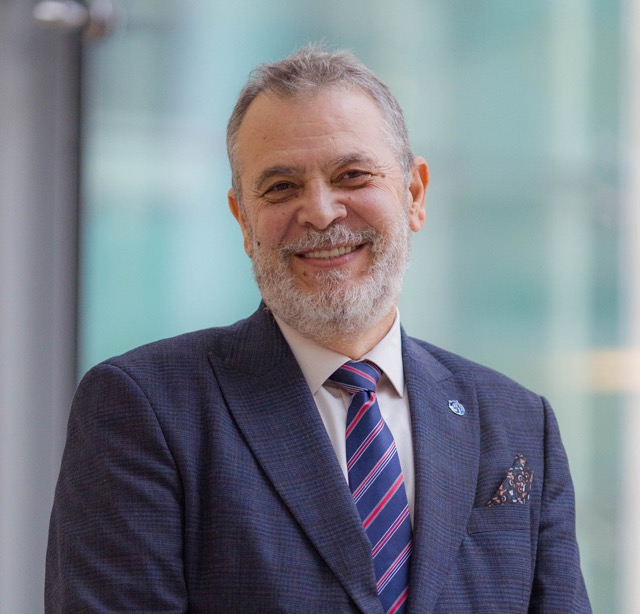
Roland Kristo (Albania)
First
vice-chairperson
Fouad Guenatri
(Algeria)
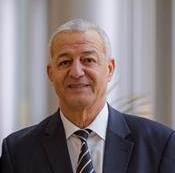
Second
vice-chairperson
Imad Lahoud
(Lebanon)
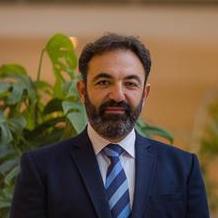
The GFCM is governed by the decisions of its 23 contracting parties. It holds statutory sessions on an annual basis to review the implementation of its yearly workplan, adopt recommendations and resolutions, endorse its autonomous budget, and agree on its future priorities and direction. It can convene special or extraordinary sessions at the request or with the approval of the majority of its members.
The sessions of the Commission are attended by member delegates, experts, advisers and observers. Each member has the right to one vote, except in the case of a regional economic integration organization, such as the European Union, which is entitled to the number of votes equal to the number of its member states that are also members of the GFCM. Regional economic integration organizations cannot exercise their votes when their member states exercise theirs and vice versa.
The GFCM also sees the participation of select cooperating non-contracting parties, and allows relevant partner organizations to contribute as observers.
As regulated in the GFCM Agreement, the Commission is coordinated by a Bureau.
Executive Secretary

Miguel Bernal
Programme and Liaison
Team leader
Margherita Sessa

Administration
Team leader
Vacant
Aquaculture
Team leader
Houssam Hamza
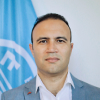
Fisheries
Team leader
Elisabetta Betulla Morello
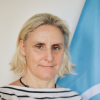
Compliance
Team leader
Miguel Bernal (acting)

Publishing and Communications
Team leader
Dominique Bourdenet

Data and
Information
Team leader
Federico De Rossi (acting)

Mandate
Established in 1997, the mandate of the Scientific Advisory Committee on Fisheries (SAC) is to provide scientific, social and economic advice relating to the work of the Commission, as well as support the implementation of multiannual management plans, taking into account a subregional approach. The SAC shall, in particular:
- collect and assess information on catches, fishing effort, fleet capacity and other data relevant to the conservation and management of fisheries;
- assess the status and trends of relevant populations of living marine resources, ecosystems and fisheries-related human components, using the appropriate indicators and in relation to agreed biological and/or management reference points;
- provide independent advice to facilitate the adoption of recommendations concerning the sustainable management of fisheries and ecosystems at the regional and subregional levels, including relevant biological, environmental, social and economic aspects, the ecosystem approach to fisheries, the impact of IUU fishing and the assessment of biological and ecological implications under different management scenarios;
- keep abreast of cooperative scientific and technical research projects and programmes of interest to the Committee;
- undertake any other functions or responsibilities as may be conferred on it by the Commission.
Structure
The SAC operates through:
- Subregional committee for the Western Mediterranean (SRC-WM)
- Subregional committee for the Central Mediterranean (SRC-CM)
- Subregional committee for the Adriatic Sea (SRC-AS)
- Subregional committee for the Eastern Mediterranean (SRC-EM)
The subregional committees rely on the technical input of working groups (stock assessment, marine environment, small-scale and recreational fisheries, fishing technology etc.) and on ad hoc workshops.
The SAC uses the GFCM Data Collection Reference Framework (DCRF) to support contracting parties and cooperating non-contracting parties in complying with recommendations for the collection and submission of fisheries data to the GFCM. The DCRF is regularly reviewed by the SAC and updated as required.
Bureau
The SAC is coordinated by a Bureau:
Chairperson
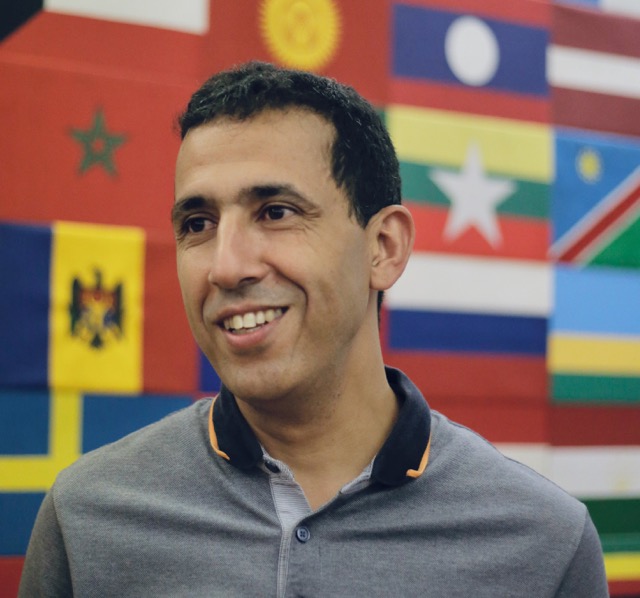
Mohammed Malouli Idrissi (Morocco)
First
vice-chairperson
Alessandro Ligas
(Italy)
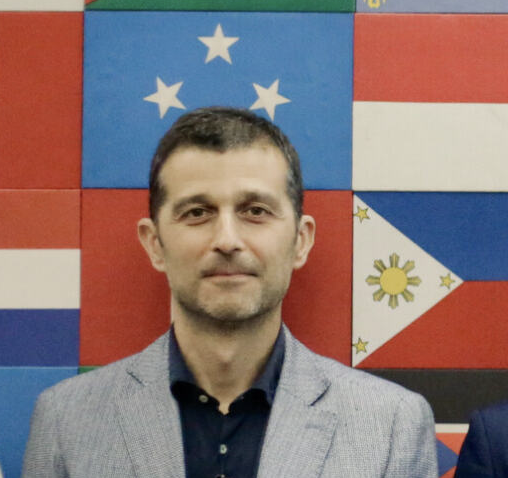
Second
vice-chairperson
Marco Kule
(Albania)
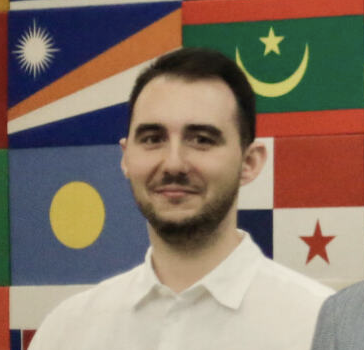
Election date: November 2023
Reports
You can access the reports from all GFCM statutory meetings here.
Mandate
Established in 2006, the Compliance Committee (CoC) is responsible for assessing and ensuring compliance with GFCM decisions and also provides advice and technical assistance in relation to national legislation, the application of GFCM recommendations, monitoring, control and surveillance issues as well as the fight against IUU fishing. The CoC shall, in particular:
- assess, on the basis of all available information, compliance by contracting parties, cooperating non-contracting parties and relevant non-contracting parties with recommendations adopted by the Commission;
- request clarifications and express concern to contracting parties, cooperating non-contracting parties and non-contracting parties in cases of non-compliance, prima facie, with recommendations adopted by the Commission;
- submit to the attention of the Commission cases in which contracting parties or cooperating non-contracting parties are not compliant with recommendations adopted by the Commission, or cases in which activities by non-contracting parties undermine the effectiveness of such recommendations and adversely affecting the objective of the Agreement, in order to facilitate their identification;
- provide additional information, as it considers appropriate or as may be requested by the Commission, relating to the implementation and compliance with recommendations adopted by the Commission, as well as with the provisions of the Agreement;
- provide independent advice on an institutional and legal basis to facilitate the adoption of recommendations, including in connection with aspects related to monitoring, control and surveillance, and technical assistance and capacity building activities to support these aspects;
- undertake other functions or responsibilities as may be conferred on it by the Commission.
Structure
The CoC operates, inter alia, through:
- Working Group on Vessel Monitoring System and related control systems (WGVMS)
- Working Group on IUU Fishing (WGIUU)
The database of GFCM decisions and the databases of national legislations are repositories of the CoC complete with up-to-date standardized information on all relevant regulations in place in GFCM countries.
Bureau
The CoC is coordinated by a Bureau:
Chairperson
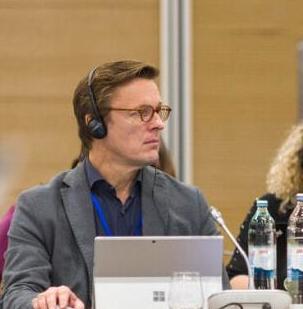
Neil Ansell (EU)
First
vice-chairperson
Abderrahmane Hentour
(Algeria)
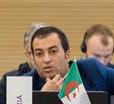
Second
vice-chairperson
Bouchra Haoujar
(Morocco)
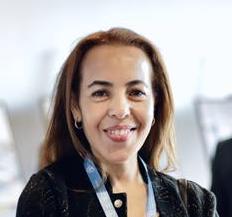
Election date: November 2023
Reports
You can access the reports from all GFCM statutory meetings here.
Mandate
Established in 1995, the Scientific Advisory Committee on Aquaculture (CAQ) is responsible for providing technical advice and promoting the sustainable development and responsible management of marine, brackish and inland aquaculture in a way that is consistent with an ecosystem approach to aquaculture and that takes into account the specific regional, subregional and local characteristics. The CAQ shall, in particular:
- monitor sustainable aquaculture development, following its progress and trends including through the identification, use and regular update of environmental, economic and social indicators;
- collect and assess information and data with regard among others to production statistics, market data, post harvesting, culture systems, technologies used, farmed species, environmental and aquatic animal health issues;
- provide independent advice on a technical and scientific basis to facilitate the adoption of recommendations concerning the sustainable development of aquaculture with regard to biological, environmental, social and economic issues;
- identify and promote the development and implementation of cooperative scientific and technical research projects and programmes;
- carry out any other functions or responsibilities as may be conferred on it by the Commission.
Structure
The CAQ operates through Technical Advisory Groups (TAGs) that provide guidance and expertise in their respective domains:
- TAG on aquatic animal health and biosecurity (TAG-AHB)
- TAG on governance and responsible investment in aquaculture (TAG-GRIA)
- TAG on innovation and technology (TAG-IT)
- TAG on spatial planning for aquaculture (TAG-SPA)
- TAG on value chain and market access (TAG-VCMA)
- TAG on environment and climate change (TAG-ECC). TAG-ECC is cross-cutting and works across all other TAGs.
The CAQ runs a number of regional Aquaculture Demonstration Centres to promote modern technologies and best practices in aquaculture.
The GFCM collects data and information on all aspects of aquaculture through the Information System for the Promotion of Aquaculture in the Mediterranean (SIPAM).
Bureau
The CAQ is coordinated by a Bureau:
Chairperson
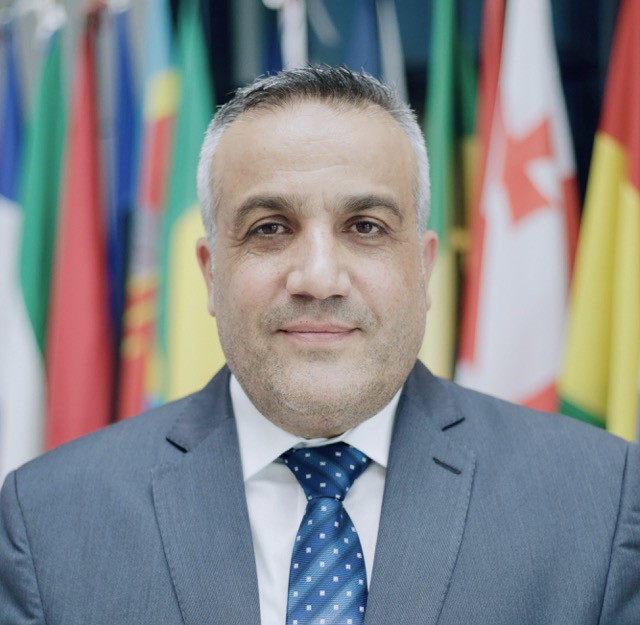
Ibrahim Al Hawi (Lebanon)
First
vice-chairperson
Mohamed El Araby
(Egypt)
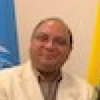
Second
vice-chairperson
Ilaria Ferraro
(Italy)
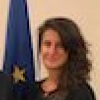
Election date: September 2019
Reports
You can access the reports from all GFCM statutory meetings here.
Mandate
Established in 2009, the mandate of the Committee on Administration and Finance (CAF) is to:
- review administrative matters relating to the Executive Secretary and the Secretariat staff;
- oversee the correct application of the Rules of Procedure and the Financial Regulations;
- review the implementation of the annual programme of work and the budget of the Commission, as adopted at its previous session;
- analyse and make recommendations to the Commission on the draft programme of work and budget as proposed for adoption at the session of the Commission;
- submit to the Commission proposals concerning the need, as appropriate, for the amendment of the Rules and the Financial Regulations;
- undertake other functions or responsibilities as may be conferred on it by the Commission.
Bureau
The CAF is coordinated by a Bureau:
Chairperson
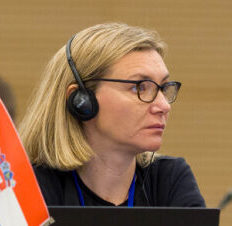
Ivana Petrina (Croatia)
First
vice-chairperson
Atif Salah Megahed
(Egypt)
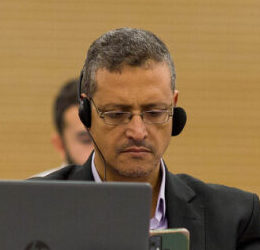
Second
vice-chairperson
Rachid Boukedjouta
(Algeria)
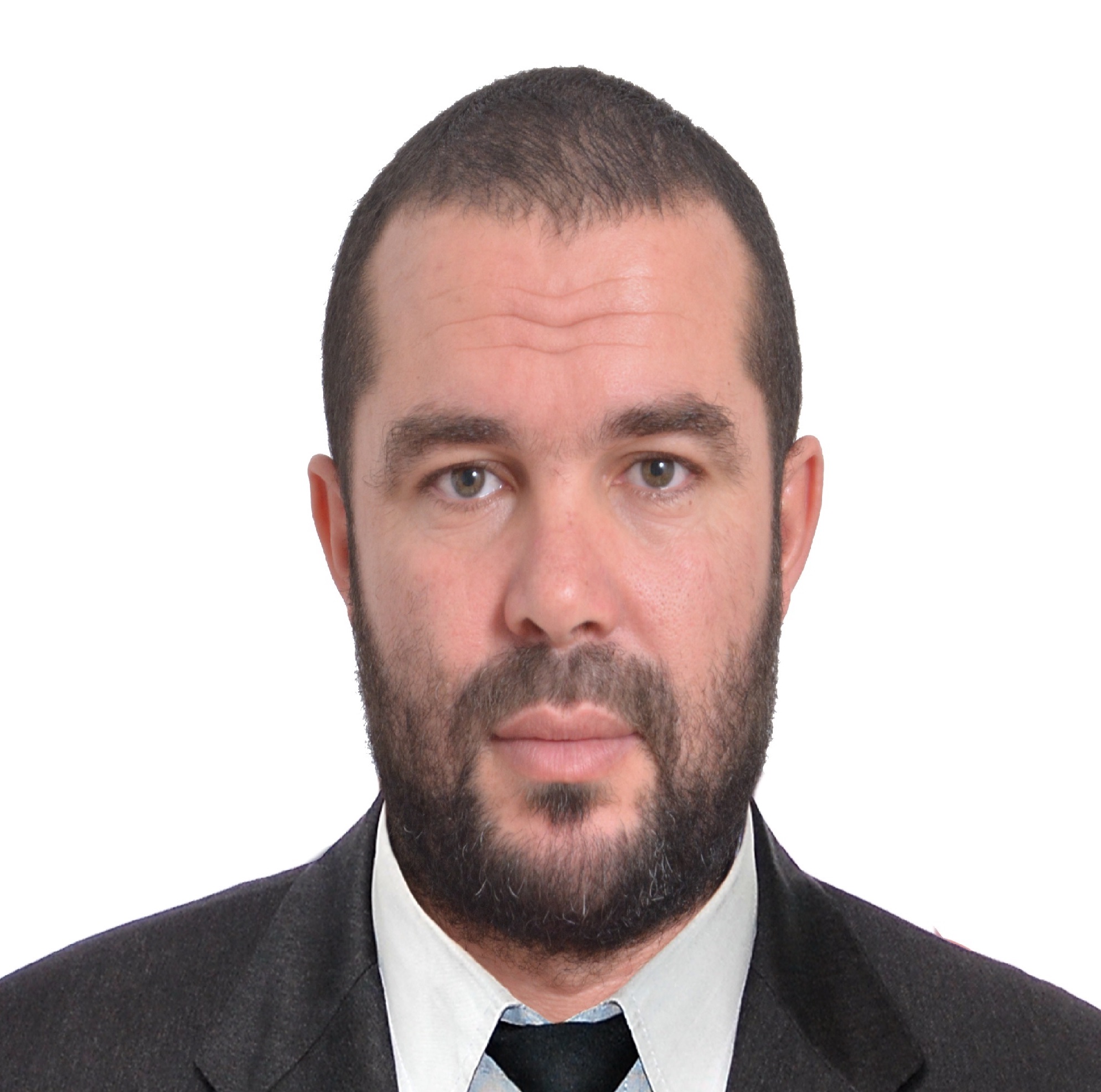
Election date: November 2022
Reports
You can access the reports from all GFCM statutory meetings here.
Mandate
The Working Group on the Black Sea (WGBS) was created by the GFCM in 2010 as an ad hoc mechanism for scientific work and decision-making for Black Sea riparian states: the issues in the region necessitated a regionally influential, widely recognized institutional arrangement. WGBS objectives are to provide scientific advice to the GFCM on matters linked to fisheries management and conservation, including biological, social and economic aspects.
Structure
The WGBS operates on the basis of the technical work of established working groups (stock assessment, small-scale fisheries, etc.) and ad hoc workshops.
The implementation of WGBS activities benefits from the support of the BlackSea4Fish project and a team based in the GFCM subregional technical unit for the Black Sea (BSU) in Burgas, Bulgaria.
The GFCM Data Collection Reference Framework (DCRF) is the instrument of the WGBS to support contracting parties and cooperating non-contracting parties (CPCs) in complying with existing recommendations for the collection and submission of all fisheries data to the GFCM. The DCRF is regularly reviewed by the SAC in light of possible requirements emanating from the Commission, including through new recommendations, and upon WGBS advice for Black Sea matters.
Bureau
The WGBS is coordinated by a Bureau:
Coordinator
Göktuğ Dalgiç (Türkiye)
First
vice-coordinator
Georgi Ralchev
(Bulgaria)
Second
vice-coordinator
George Tiganov
(Romania)
Election date: 8 November 2024
Reports
You can access the reports from all GFCM statutory meetings here.
